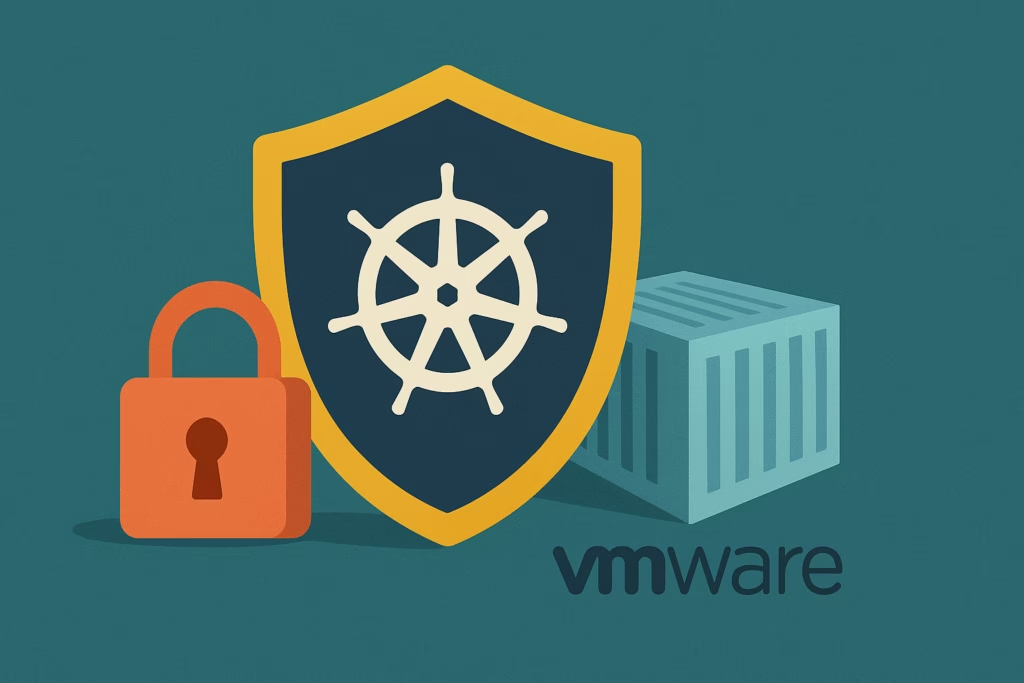
Container technology has revolutionized how organizations deploy and manage applications, but it has also introduced new security challenges that traditional security models struggle to address. As containerized environments become increasingly complex, the need for robust security solutions has never been more critical. VMware has positioned itself as a leader in this space, offering comprehensive container security solutions that address the unique vulnerabilities inherent in containerized infrastructures.
The rapid adoption of containers has created a security gap that cybercriminals are eager to exploit. According to recent industry reports, over 75% of organizations using containers have experienced security incidents related to their containerized environments. This alarming statistic underscores the urgent need for specialized security measures that can protect against container-specific threats while maintaining the agility and scalability that make containers so valuable.
Understanding Container Security Challenges
Container security differs significantly from traditional virtualization security due to the unique architecture and deployment patterns of containerized applications. Unlike virtual machines that provide complete isolation through hypervisors, containers share the host operating system kernel, creating potential attack vectors that don’t exist in traditional virtualized environments.
Key Container Security Vulnerabilities
The shared kernel architecture of containers introduces several critical security concerns that organizations must address:
- Kernel Exploits: A successful attack on the shared kernel can compromise all containers running on the host
- Container Escape: Malicious actors may attempt to break out of container isolation to access the host system
- Image Vulnerabilities: Containers built from compromised or outdated base images inherit security flaws
- Runtime Threats: Dynamic container environments face real-time security challenges during execution
- Network Segmentation Issues: Improper network configuration can expose containers to lateral movement attacks
The Complexity of Multi-Cloud Container Deployments
Modern organizations often deploy containers across multiple cloud platforms and on-premises infrastructure, creating additional security complexity. This hybrid approach requires security solutions that can provide consistent protection across diverse environments while maintaining visibility into container activities regardless of their location.
VMware’s Approach to Container Security
VMware has developed a comprehensive container security strategy that addresses vulnerabilities throughout the container lifecycle. Their approach combines traditional virtualization security expertise with container-specific protections, creating a robust defense mechanism that organizations can deploy across their entire infrastructure.
VMware Carbon Black Container Security
VMware Carbon Black provides advanced endpoint protection specifically designed for containerized environments. This solution offers real-time threat detection and response capabilities that can identify and neutralize threats before they compromise container workloads.
The platform utilizes behavioral analysis and machine learning to detect anomalous activities within container environments. By establishing baseline behavior patterns for containerized applications, Carbon Black can quickly identify deviations that may indicate security incidents or attempted attacks.
VMware vSphere Integration
VMware’s container security solutions integrate seamlessly with existing vSphere infrastructures, providing organizations with a unified security management platform. This integration allows security teams to apply consistent policies across both traditional virtual machines and containerized workloads.
The vSphere integration includes:
- Unified Policy Management: Single console for managing security policies across all virtualized resources
- Consistent Security Controls: Apply the same security standards to containers and VMs
- Centralized Monitoring: Comprehensive visibility into security events across the entire virtual infrastructure
- Automated Response: Triggered security actions based on predefined threat scenarios
Container Image Security and Vulnerability Management
One of the most critical aspects of container security involves securing container images throughout their lifecycle. VMware’s solutions address this challenge through comprehensive image scanning and vulnerability management capabilities.
Pre-Deployment Image Scanning
VMware’s container security platform performs thorough scans of container images before deployment, identifying known vulnerabilities, malware, and configuration issues. This proactive approach prevents compromised containers from entering production environments.
The scanning process includes:
- Operating system package vulnerability assessment
- Application dependency analysis
- Malware detection and quarantine
- Configuration compliance verification
- Digital signature validation
Runtime Protection and Monitoring
Beyond pre-deployment scanning, VMware provides continuous runtime protection that monitors container behavior and network communications. This real-time monitoring capability ensures that threats emerging during container execution are quickly identified and addressed.
Runtime protection features include network traffic analysis, process monitoring, and file system integrity checks. These capabilities work together to create a comprehensive security umbrella that protects containers throughout their operational lifecycle.
Network Security and Micro-Segmentation
Container environments require sophisticated network security measures due to their dynamic nature and complex inter-container communications. VMware addresses these challenges through advanced network security and micro-segmentation capabilities.
NSX-T Container Network Security
VMware NSX-T provides comprehensive network security for containerized environments, offering micro-segmentation capabilities that can isolate container workloads and prevent lateral movement attacks. This granular network control is essential for maintaining security in dynamic container environments.
Key NSX-T container security features include:
- Dynamic Security Policies: Automatically applied security rules based on container metadata and labels
- East-West Traffic Inspection: Deep packet inspection for inter-container communications
- Distributed Firewall: Kernel-level firewall protection for every container workload
- Network Visualization: Comprehensive mapping of container network communications
Container Network Threat Detection
VMware’s network security solutions include advanced threat detection capabilities specifically designed for container environments. These systems can identify suspicious network patterns, unauthorized communications, and potential data exfiltration attempts.
The threat detection system utilizes machine learning algorithms to analyze network traffic patterns and identify anomalies that may indicate security incidents. This proactive approach enables security teams to respond to threats before they can cause significant damage.
Compliance and Governance in Container Environments
Organizations operating in regulated industries face unique challenges when implementing container security solutions. VMware’s platform addresses these requirements through comprehensive compliance and governance features.
Regulatory Compliance Support
VMware container security solutions support various regulatory frameworks, including PCI DSS, HIPAA, and SOX. The platform provides automated compliance reporting and audit trails that simplify regulatory compliance efforts.
Compliance features include:
- Automated compliance scanning and reporting
- Policy template libraries for common regulatory requirements
- Audit trail generation and retention
- Risk assessment and scoring
- Remediation guidance and tracking
Implementation Best Practices
Successfully implementing VMware container security solutions requires careful planning and adherence to security best practices. Organizations should consider the following recommendations when deploying these solutions:
Gradual Deployment Strategy
Implement container security solutions in phases, starting with non-critical workloads and gradually expanding to production environments. This approach allows organizations to fine-tune security policies and processes before protecting mission-critical applications.
Security Policy Development
Develop comprehensive security policies that address the unique requirements of containerized environments. These policies should cover image management, network security, access controls, and incident response procedures.
Team Training and Skill Development
Invest in training programs that help security teams understand container-specific threats and security measures. The dynamic nature of container environments requires specialized knowledge that traditional security professionals may not possess.
Future Trends in Container Security
The container security landscape continues to evolve as new threats emerge and container adoption increases. VMware is positioning itself to address future challenges through ongoing research and development efforts.
Emerging trends include increased automation in security operations, enhanced integration with DevOps workflows, and improved threat intelligence sharing. Organizations should stay informed about these developments to ensure their container security strategies remain effective.
Key Takeaways
VMware’s container security solutions provide comprehensive protection for organizations deploying containerized applications across hybrid cloud environments. The platform addresses the unique security challenges of container technology through integrated scanning, runtime protection, network security, and compliance capabilities.
Success with VMware container security requires careful planning, proper implementation, and ongoing management. Organizations must invest in training, develop appropriate security policies, and maintain awareness of emerging threats and security trends.
As container adoption continues to grow, robust security solutions like those offered by VMware become increasingly critical for protecting organizational assets and maintaining operational continuity. The investment in comprehensive container security measures pays dividends through reduced risk, improved compliance, and enhanced operational efficiency.
Container security represents a critical component of modern cybersecurity strategies. While solutions like VMware’s platform provide excellent protection for containerized environments, organizations should also consider implementing comprehensive security measures across their entire infrastructure. This holistic approach ensures that all potential attack vectors are addressed, from traditional phishing attempts to sophisticated container-based threats.


